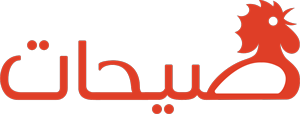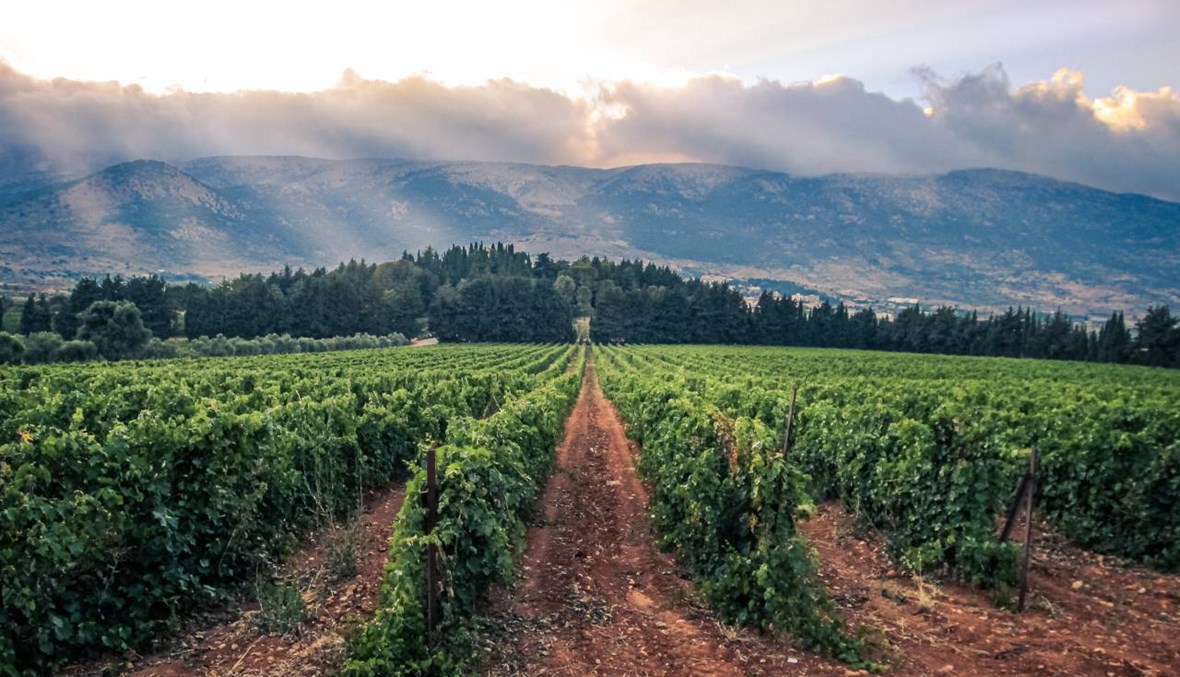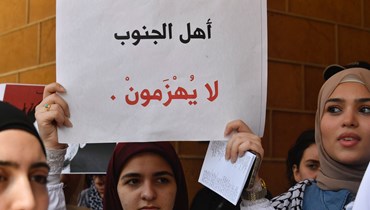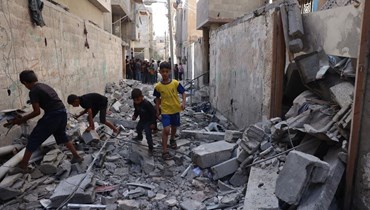The potential of sustainable agriculture in Lebanon
BAYONNE: The agricultural sector is the backbone of various developing countries as it reduces hunger through ensuring food security and decreases unemployment rates.
“Developing this sector could offer great employment potential,” Serge Zamora, an economist, and a senior analytical consultant told Annahar, “this potential is not restricted to people cultivating the lands and taking care of the livestock; but also ensures vacancies to people working in processing, marketing, packaging, and transport.”
With the upsurge of supermarket prices and the worsening of living conditions in the country, many Lebanese resorted to growing the crops themselves. In this context, Zamora added that local agriculture and livestock can also ensure self-sufficiency and reduce the need to import food products, especially the ones that can be locally produced, such as fruits, vegetables, cereals, industrial crops, and dairy products. Consequently, this would limit the export of foreign currencies and ensure a more stable local economy that does not fully depend on external factors.

This was also supported by the Lebanese director Nadine Labaki who urged people to return to Earth through the initiative “Zari’et Albi” which literally translates to “the plant of my heart”. The latter was coordinated with various organizations and programs promoting sustainable and organic agriculture including Beit el Baraka, Ardi Ardak, AUB Environment and Sustainable Development Unit, Regenerate Lebanon, Agronorte, and Buzurna Juzurna.
This initiative invites people to plant their gardens, roofs, and even balconies to achieve self-sufficiency while connecting with nature.
As indicated by Statista, a German online portal, the agriculture sector constituted 4.49% of the share of economic sectors in Lebanon’s Gross Domestic Product (GDP) in 2008 and this percentage dropped to reach 2.92% in 2018.
According to Zamora, the agriculture sector holds a weak position in Lebanon, as over the past decades the government favored the development of the service and the industry sectors which in 2018 constituted respectively, 75% and 15% of the country’s GDP.
Nonetheless, the agriculture sector presents a potential for development and various opportunities due to the country’s arable lands, moderate climate, and freshwater resources.
According to the national investment promotion agency (IDAL); in 2018 the agriculture sector generated around USD 1.8 billion and offered roughly 63 000 employments. The export of agricultural products reached over USD 193 million in 2019. IDAL asserted that Arab countries constituted over 75% of total exports in 2019. Additionally, it highlighted that the agri-food sector also is one of the largest contributors to the industrial sector accounting for 38% of the industrial production and for 11.7% of total exports.
Various crops can be planted and could support the agricultural and industrial sectors. For instance, olive planting provides opportunities to produce virgin olive oil. Lebanese wine is also gaining popularity around the world and, as stated by IDAL, its export reached USD 21 million in 2019. Lebanese dairy products, nuts, fresh and dried fruits as well as chocolate are also in high demand, particularly in Arab countries.
The potential of the agricultural sector could also be enhanced as in April 2020 the parliament passed the legislation legalizing the planting of cannabis for industrial and medical purposes. McKinsey & Co., an American consultancy firm, had estimated the legalization of cannabis cultivation could spawn up to USD 1 billion per year in government returns.
However, agriculture has an immense environmental footprint and if not well-managed, it could lead to land degradation, deforestation, water scarcity, and climate change. Sustainable agriculture practices, or in other terms, agriculture methods that meet the current demands of society without compromising the ability of future generations to meet their needs, are thus crucial. It provides a solution to feed a growing population and allows to sustain the economic viability of the agricultural system through protecting the environment and natural resources within changing environmental conditions. Sustainable practices include improved pest control, reducing the need for herbicides, the diversification of crops, the support of biodiversity, the replenishment of soil nutrients as well as the prevention of erosion.
It is important that the government invests more in the development of local agriculture which is fundamental to the growth of the local economy. Sustainable agriculture needs to become the dominant model in Lebanon. Hence, appropriate sustainable farming and agriculture policies need to be developed. Farmers need to be informed and their awareness needs to be raised to understand the importance of sustainable agriculture and its long-term economic viability. Laws should be developed to ensure the protection of environmental and natural resources.
Initiatives and programs such as “Zari’et Albi”, encouraging local communities to grow their food on the roofs, on balconies, and in backyards should be supported and replicated.
Rim Khamis graduated from the Lebanese American University with a Bachelor of Architecture degree and accomplished her masters in Environmental and Energy Management at the University of Twente in the Netherlands. Rim is currently undergoing her Ph.D. studies in Geography and Planning at the University of Pau and Pays de L'Adour in France after being selected as a laureate for the E2S Ph.D. Grant awarded for outstanding researchers in the field of Environmental and Energy Solutions. She is also working in collaboration with the Center for Environmental Policy at Imperial College London on topics related to environmental policies in urban contexts.


 اشترِك في نشرتنا الإخبارية
اشترِك في نشرتنا الإخبارية











